MercoPress. South Atlantic News Agency
Stories for March 19th 2009
-
Friday, March 20th 2009 - 06:58 UTC
Uruguayan president travels to China to boost trade and investment

Uruguayan president Tabare Vazquez together with several ministers and a delegation of 70 businessmen left Friday for an official state visit to China. The party arrives Saturday in Beijing but the official program begins Monday when President Vazquez will be received by this Chinese counterpart Hu Jintao.
-
Friday, March 20th 2009 - 06:57 UTC
UN blames surging food prices on large-scale speculation

Both the surging food prices from 2007 to 2008 and their subsequent drop in some areas are a result of large-scale speculation by financial investors, according to a new report by the United Nations trade body, which called for greater regulation to protect millions of poor people worldwide.
-
Friday, March 20th 2009 - 06:53 UTC
US Congress reacts to AIG and targets Treasury Secretary

US lawmakers in the House of Representatives have voted in favour of a bill to levy a 90% tax on big bonuses from firms bailed out by taxpayers.
-
Friday, March 20th 2009 - 05:36 UTC
Argentina’s current account surplus begun downturn in fourth quarter
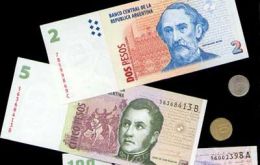
Argentina's fourth-quarter current account surplus shrank 40% from a year earlier to 1.81 billion USD, mainly because of a smaller merchandise trade surplus as the global financial crisis hurt the local economy, the government said on Thursday.
-
Friday, March 20th 2009 - 05:27 UTC
Brazil needs 270 billion USD in ten years to make true its oil dreams
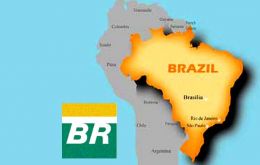
Brazil needs 270 billion US dollars in investment over the next 10 years to develop massive new deepwater oil reserves, energy minister Edison Lobao said on Thursday.
-
Friday, March 20th 2009 - 05:21 UTC
Thousands march in Argentina demanding more action against rampant crime

An estimated 10.000 Argentines marched Wednesday evening on the historic Plaza de Mayo in the capital, Buenos Aires to demand more anti-crime measures, reflecting a top priority among Argentines, according to recent polls. The protest was repeated in other marches through out Argentina at the same time.
-
Thursday, March 19th 2009 - 16:51 UTC
Chilean economy expands 0.2% in fourth quarter and 3.2% in 2008
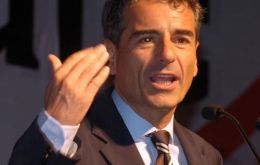
The Chilean economy expanded 0.2% in the last quarter of 2008 closing the year with an overall growth of 3.2%, according to data released by the Central Bank.
-
Thursday, March 19th 2009 - 16:47 UTC
Obama plans to visit Mexico April 16 and 17
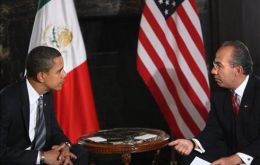
US President Barack Obama has announced he will travel to Mexico next month, making his first trip to that country as president. Mexico's government says President Obama will visit the country on April 16 and 17.
-
Thursday, March 19th 2009 - 16:44 UTC
Pulp and paper maker Stora Enso freezes huge mill expansion in Brazil

Europe’s largest paper and pulp maker Stora Enso anticipated a drop in first quarter earnings and said it is freezing the expansion of a mill in Brazil because of sliding demand for wood and fine paper used in offices and magazines.
-
Thursday, March 19th 2009 - 16:40 UTC
Antarctic ice cap melting much faster than predicted
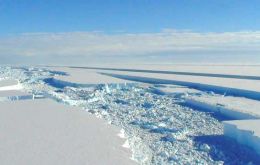
Two more scientific studies show a large part of the Antarctic ice cap melting at a much faster rate than previously predicted.
